Hello guys, If you are in web development or Software development then you may know that databases are an important part of modern development. Be it web or mobile application development, you will always find some kind of database in it. Modern development is not complete without databases because data is required to be stored somewhere. As a Java developer I have worked across many projects and most of them have relational database but things are changing nowadays and more and more project are using NoSQL Databases like MongoDB, Redis, Cassandra etc which can really improve performance in many specialized cases.
Earlier, the common approach was to use the traditional databases consisting of tables with rows and columns. SQL was the most commonly used database and even today, it is very popular. But with the emergence of NoSQL databases, usage of traditional databases has decreased.
Earlier, the common approach was to use the traditional databases consisting of tables with rows and columns. SQL was the most commonly used database and even today, it is very popular. But with the emergence of NoSQL databases, usage of traditional databases has decreased.
The NoSQL databases use documents to store data rather than tables. Using documents to store data has many advantages like you can pull a lot of data together in one short, unlike row and column based data from relational database.
Today, MongoDB is the most popular NoSQL database. It is a part of popular software development stacks: MERN and MEAN stacks. In this article, we will discuss why you should learn MongoDB in 2021.
Today, MongoDB is the most popular NoSQL database. It is a part of popular software development stacks: MERN and MEAN stacks. In this article, we will discuss why you should learn MongoDB in 2021.
10 Reasons to learn MongoDB and NoSQL in 2025
Without wasting anymore your time, here is a list of 10 reasons which make sense why programmers and developers should learn MongoDB and NoSQL in general in 2025.1. MongoDB is the top NoSQL database
When it comes to NoSQL databases, MongoDB, by far, is the most popular. With the rise of NoSQL databases, DynamoDB, Cassandra, and HBase have also gained attention but MongoDB remains at the top.There are several reasons why MongoDB is more popular than other NoSQL databases. So if you are choosing a NoSQL database, then MongoDB is the best choice.
According to the Stack Overflow developer survey, MongoDB is the most "wanted" database in the world. Also, the top 4 positions in the list were occupied by NoSQL databases only. MYSQL was not even in the top 5. Various other surveys also show that MongoDB is not only the most popular NoSQL database but also more popular than SQL databases.
According to the Stack Overflow developer survey, MongoDB is the most "wanted" database in the world. Also, the top 4 positions in the list were occupied by NoSQL databases only. MYSQL was not even in the top 5. Various other surveys also show that MongoDB is not only the most popular NoSQL database but also more popular than SQL databases.
2. Ease of learning
Unlike MySQL, there are no complex queries in MongoDB. Learning, understanding, and writing queries is also complex, even for experienced developers. But there are no such complex queries in MongoDB. Accessing data is very easy.So even a beginner can learn MongoDB easily. Also there are a lot of MongoDB courses available in the market, including free MongoDB courses, you can use them to learn MongoDB yourself online.
3. MongoDB is schemaless
Though those who have worked on SQL databases know creating tables and defining rows and columns can be a headache. But in MongoDB, there is nothing like this. There is no need to define a schema. We can just add a document to a collection and that's it.4. High speed
A database should process data with high speed because the performance of the application depends on it. MongoDB processed data very fast. If the data is properly documented (as it should be in MongoDB), then MongoDB will provide high speed while processing it.
MongoDB can also handle unstructured data with great efficiency. It performs way better than MySQL when it comes to unstructured data.
5. Better indexing
Search operations are an important part of database operations or even, the most commonly used operation on databases. Searching should be fast because it impacts the performance of the application.The indexing provided by MongoDB greatly improves the performance of search operations. Because the operations are performed on indexes rather than whole documents, the performance and speed of the operations enhance greatly.
6. MongoDB and Node.js
Node.js is one of the most popular and widely used server-side technologies. It is often called a backend framework. Developers often prefer using MongoDB with Node.js because it's easier to integrate MongoDB databases with Node.js.Moreover, express.js is also used with Node that makes the job more comfortable. The popularity of Node.js is only increasing and it will keep increasing in the future. So it is obvious the most preferred database with Node i.e. MongoDB will also become more popular in the future.
7. MERN and MEAN stacks
If you are familiar with tech stack for building applications then you may know that R in MERN stack and A in MEAN stack stands for React.js and Angular/Vue.js respectively. Both, React and Angular, are the most popular and widely used frontend frameworks in the world.Though Angular is older, it is widely used, and React, the newer one has already become the most loved and wanted frontend framework. Because of their popularity, MERN and MEAN stacks are being used more and more for full-stack development. In both of these software development stacks, M stands for MongoDB.
So learning MongoDB is worth it because you not only learn backend development but may also move to frontend development because of these popular MERN and MEAN stacks.
Decreasing usage and popularity is not the only reason for MongoDB's better future, but there are many other reasons. Some of them were discussed in this article. MongoDB is easy to learn and use. Its performance is better.
8. MongoDB realm
Earlier, MongoDB was mostly limited to web applications. But with the emergence of mobile application development, MongoDB also launched its own mobile version: MongoDB realm. So learning MongoDB as well as Realm will increase your chance of getting better opportunities.9. Better future
So in the above eight points, we discussed that MongoDB is the most popular NoSQL database. Moreover, It has become more popular than MySQL. According to many professionals, NoSQL is the future of databases. Though SQL is widely used, its popularity is decreasing. In the future, We may not see SQL, but only MongoDB.Decreasing usage and popularity is not the only reason for MongoDB's better future, but there are many other reasons. Some of them were discussed in this article. MongoDB is easy to learn and use. Its performance is better.
Its speed is better. And it provides features such as indexing, load-balance, and shaddering. Moreover, Its combination with Node.js, React.js, and Angular will only increase its usage and popularity in the future.
10. High-paying jobs
As mentioned earlier, MongoDB is the most "wanted" database in the year 2020. So it directly means that MongoDB has a huge job market in backend development. The best part is that MongoDB developers are generally full-stack developers. And there is no need to say how much full-stack developers are paid worldwide.That's all about the 10 Reasons to learn MongoDB in 2025. No doubt, MongoDB is one of the hot databases out there. You should learn MongoDB in 2021? Absolutely yes! You should learn SQL? That depends on your goal. You should learn only MongoDB? No!
There are other popular NoSQL databases as well. You should start with MongoDB and also give some time and effort to other NoSQL databases. If you want the best, then you should learn something like MERN or MEAN stack.
Other Java, MongoDB and NoSQL Database articles you may like
- The 2025 Java Developer RoadMap
- Top 5 Courses to become a full-stack Java developer
- How to become an AWS Solution Architect in 2025
- 10 Things Java and Web Developer Should Learn in 2025
- Best Courses to learn Java in 2025
- 10 Courses to learn Spring Boot and Microservices
- How to Crack Java SE 11 Certification in 2025
- 5 Courses to Learn Big Data and Apache Spark in Java
- 10 Testing Tools Java Developers Should Know
- 10 Books Every Java Programmer Should Read in 2025
- How to Crack Spring Professional v5.0 Certification in 2025
- 5 Courses to learn Core Spring in-depth
- 10 Tools Java Developers uses in their day-to-day work
- 5 Frameworks Java Developers Should Learn in 2025
Thanks for reading this article so far. If you like these reasons to learn MongoDB in 2025 then please share with your friends and colleagues. If you have any other reason to learn MongoDB then please share in comments.
P. S. - If you are keen to learn MongoDB in 2025 and looking for best online courses and other resources then you can also check-out these best MongoDB online courses to start with. It contains many great courses to learn MongoDB in depth online from sites like Udemy, Pluralsight, Coursera, and ZTM Academy.

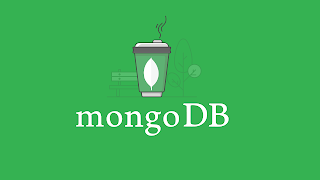
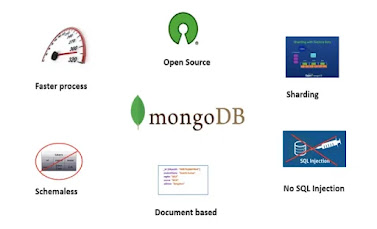

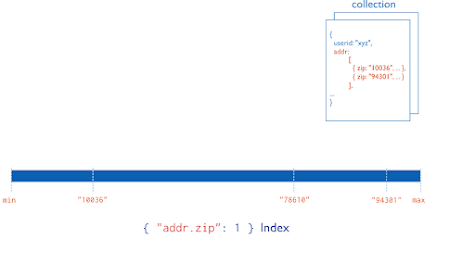
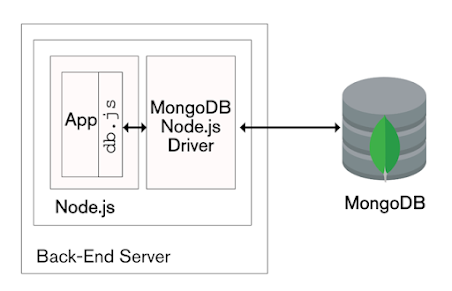

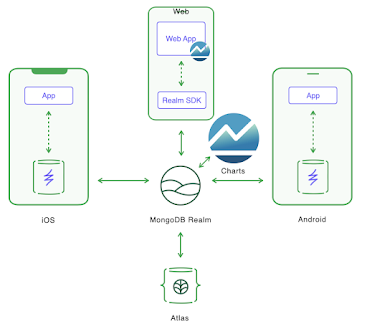
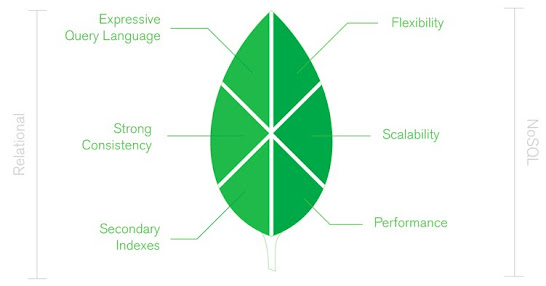










No comments :
Post a Comment